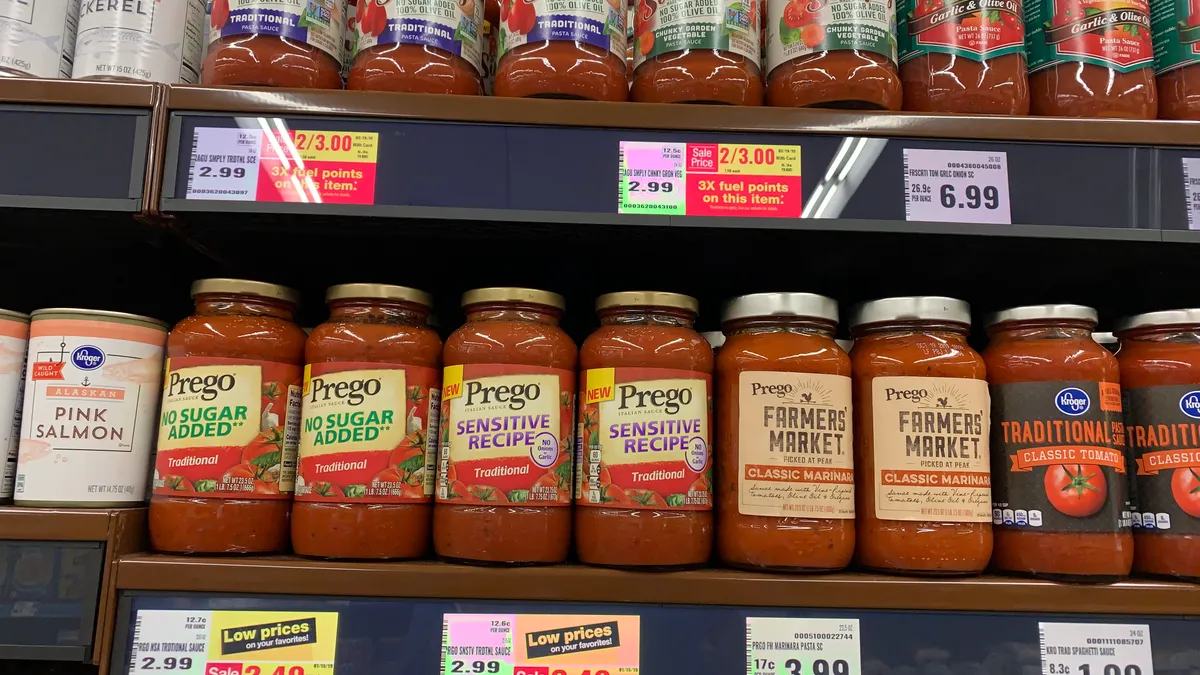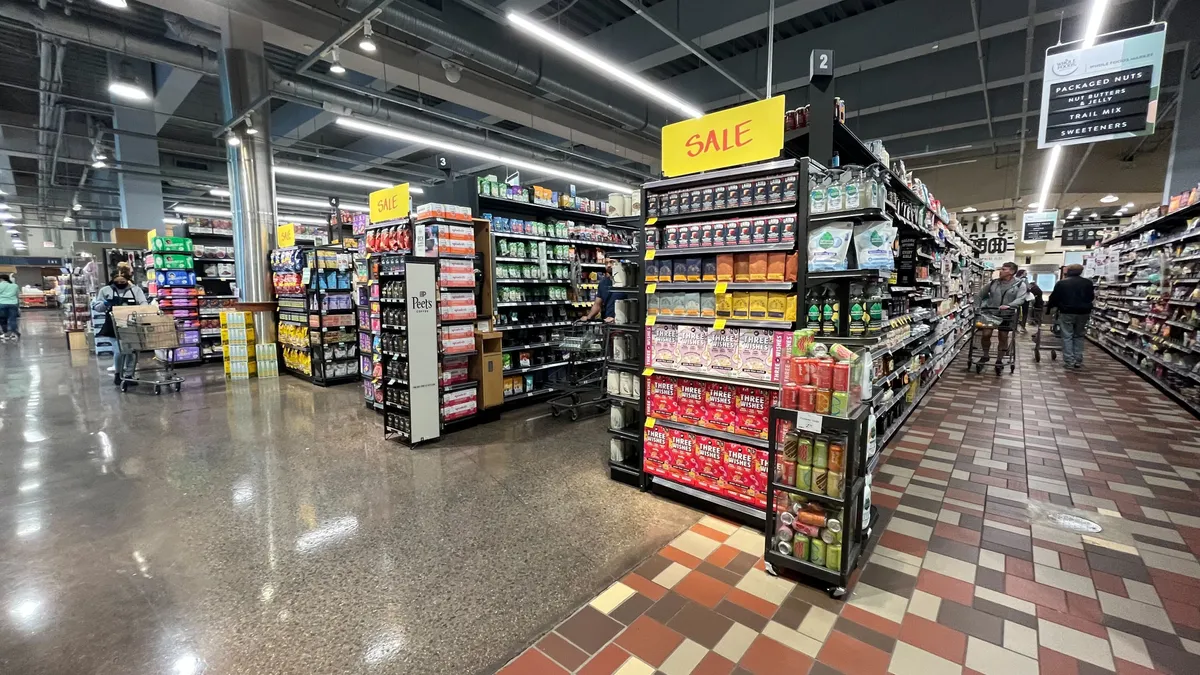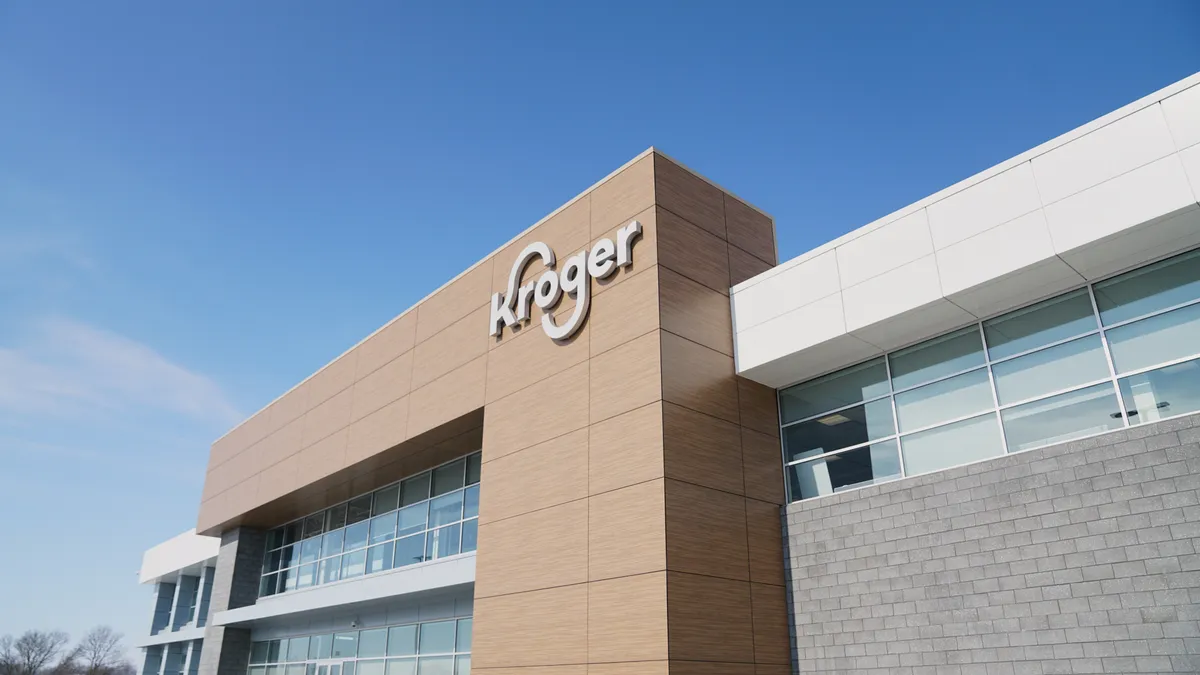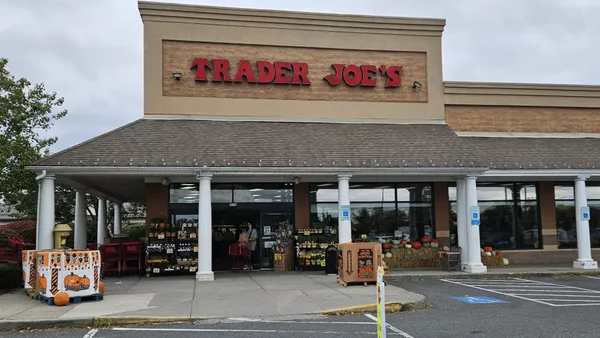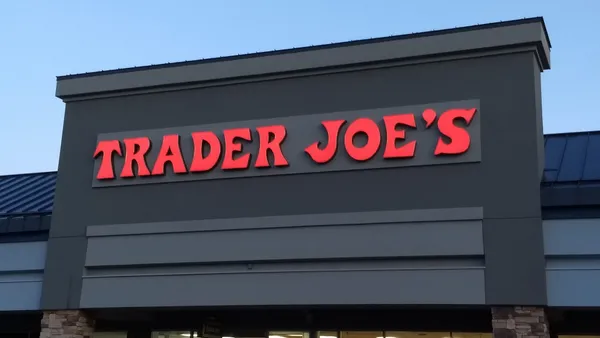Dive Brief:
- Kroger announced a new plan to standardize date labels for its private label food products aimed at providing consumers with easier-to-understand information about quality and safety, according to a press release.
- Earlier this year, Kroger began transitioning its food products to one of two date labels. "Use By" indicates the deadline by which a consumer needs to eat a product, while "Best if Used By" tells when the product's quality and freshness begins to diminish.
- The program is part of the retailer’s Zero Hunger | Zero Waste social impact initiative, which aims to erase food waste across the company by 2025. Roughly 20% of food waste is attributed to misunderstood date labeling, according to food waste research group ReFED.
Dive Insight:
Kroger's initiative falls in line with the U.S. Food and Drug Administration's push to standardize date labels. The organization notes that a profusion of labels like "use before," "best by" and "sell by" printed on food labels are not a reflection of whether or not a product is safe to eat, and has created confusion among consumers.
According to the FDA, American throw out roughly one third of the food they buy, and 20% of that comes as a result of uncertainty over date labels.
Industry groups like the Grocery Manufacturers Association and the Food Marketing Institute have also been pushing for standardized date labeling. As of December 2018, 87% of CPG products used a standardized “best if used by” label. Now, the trade groups predict that 98% of products will use the standardized version by January 2020. Consumers appear to readily accept the new protocol, with 85% describing the streamlined dating system as helpful, according to a survey from GMA and FMI.
Food waste has become a big discussion topic for retailers that want to improve their sustainability efforts while reducing their environmental impact. In 2017, Kroger committed itself to eliminate food waste by 2025. This includes efforts like 90% diversion from landfills and perishable food donations as well as composting.
As part of the effort, Kroger launched a $1 million innovation fund to help launch startups aimed at solutions that could address hunger and food waste. So far, the company has cut food waste by 9%, while increasing its landfill diversion rate for supermarket food waste by 13%.


